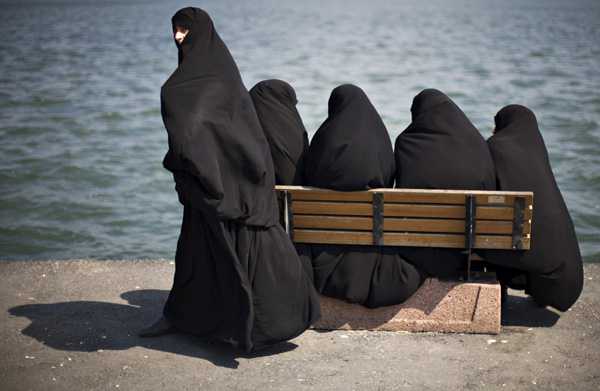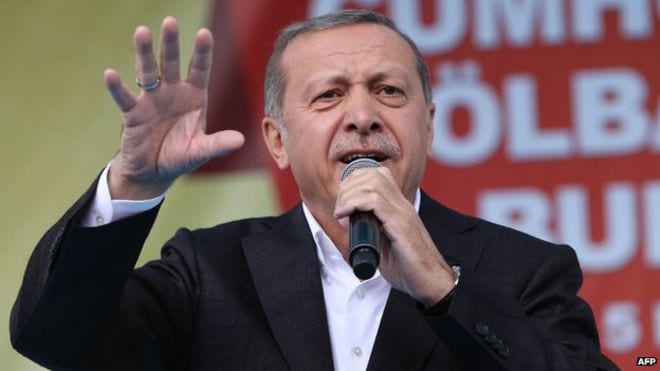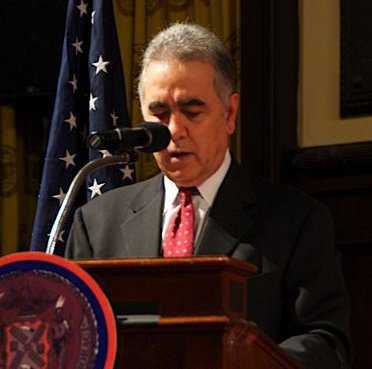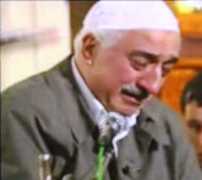DEGERLİ DOSTLAR
BU VE BENZERİ MESAJLAR ARTTİ
SURATLE YAYİLİYOR
BUNU BANA GONDEREN VE BODRUMDA FARUK BEY OLARAK TANİNAN
SU SİRALARDA TURK VATANDASLİGİNA GECMEK UZERE OLAN AMERİKALİ ARKADASİM (YASİ 70)
ULKESİNDE GELİSMEKTE OLAN NEFRET SOYLEMİNE DİKKAT CEKMEK İSTEDİGİNİ BİLDİRDİ
COK UZULDUGUNU EKLEDİ
USTELİK BUNU KENDİSİNE YOLLAYAN BİRLESMİS MİLLETLER ORGIUTUNDE YUKSEK DUZEY GOREVLİ OLAN ARKADASİ DA BU NEFRET SOYLEMİNE KATİLMAK İSTEMEDİGİNİ
BUNA RAGMEN DURUMU BİLGİMİZE SUNMAK İSTEDİGİNİ BELİRTMİS
MEDENİYETLER YA DA DİNLERARASİ BARİS VE BUNU SAGLAMAGA YONELİK GİRİSİMLER
KİFAYETSİZ KALİYOR
HUNTİNGTON HAKLİ Mİ SORULARİ SORULUYOR
BU BAGLAMDA TURKİYENİN ROLU DE DOGAL OLARAK GUNDEMDE ON PLANA CİKİYOR
URDUNDEN SOZ EDEN VAR Mİ? SUUDİLLERE MİSİR TAM SİPER…
ZİRA ULKEMİZ SON BİR KAC YİLA KADAR BOLGEDE BİR DENGE OGESİ İSLEVİNİ YURUTUYORDU
YA DA BİZ OYLE SANİYORDUK
AKP HUKUMETİNİN HAMAS’İN DEMOKRATİK YONTEMLE SECİLMİS GRUP OLDUGU VE “MUSLUMAN TEROR EYLEMİ YAPMAZ” SOYLEMİ
(HAMAS SON OLARAK SECİME GİTMEYİ REDDETTİ-UNUTMAYALİM)
-İRAN NUKLEER SİLAH YAPMİYOR SAVİ
(BU ORNEKLERİ ARTTİRABİLİRİM- HEPİMİZİN BİLDİGİ KONULAR)
TURKİYEYİ MUTTEFİKLERİNDEN UZAKLASTİRİYOR
BASİMİZİ KUMA SOKARAK BUNLARİ GORMEZLİKTEN GELEMEYİZ
DAHA DOGRUSU
BASKALARİNİN BİZİ NASİL GORDUGU HUSUSUNU GAYRİ, VAKİ-YANLİS-ONYARGİLİ DİYEREK SAVUSTURAMAYİZ
ONLARİN GORUSUNU BU KABİL YANİTLARLA DEGİSTİREMEYİZ.
SAYİN BASBAKANİMİZ İLE OBAMA ARASİNDAKİ SON GORUSMEDE BU HUSUS KENDİLERİNE
NAZİK BİR USLUPLA AMA SERAHATLE ANLATİLMİS
GELİSMELER AKİLCİ ADİMLAR İLE VE GETREKTİİGİNDE GERİ ADİM ATİLARAK DUZELTİLMEZ İSE TURKİYE İRAN VE HAMAS İLE BİRLİKTE YANLİZLİGA SURUKLENİR
TABİİ BU DA BİR SECİMDİR İRAN’İN TAVRİ BİR SECİM OLDUGU GİBİ
AMA BEDELİNİ COK AGİR BİR SEKİLDE ODEME DURUMUNDA KALABİLİRİZ
CARİ ACİK-KİBRİS- TEROR- EGE VESAİRE GİBİ KAMBURLARİMİZ VAR
BU ALANLARDA (YENİ MUTTEFİKLERİMİZ) BİZE YARDİMCİ OLAMAZLAR- BUGUNE KADAR OLMADİLAR DA
BENİ DUISUNCEYE SEVKEDEN EN ONEMLİ HUSUS
ASAGİDAKİ MESAJİN İCERDİGİ DEGERLENDİRMENİN YAYGİNLLASMASİ VE ADETA
UZERİNDE BUYUK MUTABAKA B ULUNAN BİR “GERCEK” HALİNE GELMESİ
PULAT TACAR
Turkish Forum Danisma Kurulu Uyesi
Buyukelci (E)
===============================================================================
Adapted from Dr.. Peter Hammond’s book: Slavery, Terrorism and Islam: The Historical Roots and Contemporary Threat
Islam is not a religion, nor is it a cult. In its fullest form, it is a complete, total, 100% system of life.
Islam has religious, legal, political, economic, social, and military components. The religious component is a beard for all of the other components.
Islamization begins when there are sufficient Muslims in a country to agitate for their religious privileges.
When politically correct, tolerant, and culturally diverse societies agree to Muslim demands for their religious privileges, some of the other components tend to creep in as well.
Here’s how it works:
As long as the Muslim population remains around or under 2% in any given country, they will be for the most part be regarded as a peace-loving minority, and not as a threat to other citizens. This is the case in:
United States — Muslim 0.6%
Australia — Muslim 1.5%
Canada — Muslim 1.9%
China — Muslim 1.8%
Italy — Muslim 1.5%
Norway — Muslim 1.8%
At 2% to 5%, they begin to proselytize from other ethnic minorities and disaffected groups, often with major recruiting from the jails and among street gangs. This is happening in:
Denmark — Muslim 2%
Germany — Muslim 3.7%
United Kingdom — Muslim 2.7%
Spain — Muslim 4%
Thailand — Muslim 4.6%
From 5% on, they exercise an inordinate influence in proportion to their percentage of the population. For example, they will push for the introduction of halal (clean by Islamic standards) food, thereby securing food preparation jobs for Muslims. They will increase pressure on supermarket chains to feature halal on their shelves — along with threats for failure to comply. This is occurring in:
France — Muslim 8%
Philippines — 5%
Sweden — Muslim 5%
Switzerland — Muslim 4.3%
The Netherlands — Muslim 5.5%
Trinidad & Tobago — Muslim 5.8%
At this point, they will work to get the ruling government to allow them to rule themselves (within their ghettos) under Sharia, the Islamic Law. The ultimate goal of Islamists is to establish Sharia law over the entire world.
When Muslims approach 10% of the population, they tend to increase lawlessness as a means of complaint about their conditions. In Paris, we are already seeing car-burnings. Any non-Muslim action offends Islam and results in uprisings and threats, such as in Amsterdam, with opposition to Mohammed cartoons and films about Islam. Such tensions are seen daily, particularly in Muslim sections in:
Guyana — Muslim 10%
India — Muslim 13.4%
Israel — Muslim 16%
Kenya — Muslim 10%
Russia — Muslim 15%
After reaching 20%, nations can expect hair-trigger rioting, jihad militia formations, sporadic killings, and the burnings of Christian churches and Jewish synagogues, such as in:
Ethiopia — Muslim 32.8%
At 40%, nations experience widespread massacres, chronic terror attacks, and ongoing militia warfare, such as in:
Bosnia — Muslim 40%
Chad — Muslim 53.1%
Lebanon — Muslim 59.7%
From 60%, nations experience unfettered persecution of non-believers of all other religions (including non-conforming Muslims), sporadic ethnic cleansing (genocide), use of Sharia Law as a weapon, and Jizya, the tax placed on infidels, such as in:
Albania — Muslim 70%
Malaysia — Muslim 60.4%
Qatar — Muslim 77.5%
Sudan — Muslim 70%
After 80%, expect daily intimidation and violent jihad, some State-run ethnic cleansing, and even some genocide, as these nations drive out the infidels, and move toward 100% Muslim, such as has been experienced and in some ways is on-going in:
Bangladesh — Muslim 83%
Egypt — Muslim 90%
Gaza — Muslim 98.7%
Indonesia — Muslim 86.1%
Iran — Muslim 98%
Iraq — Muslim 97%
Jordan — Muslim 92%
Morocco — Muslim 98.7%
Pakistan — Muslim 97%
Palestine — Muslim 99%
Syria — Muslim 90%
Tajikistan — Muslim 90%
Turkey — Muslim 99.8%
United Arab Emirates — Muslim 96%
100% will usher in the peace of ‘Dar-es-Salaam’ — the Islamic House of Peace. Here there’s supposed to be peace, because everybody is a Muslim, the Madrasses are the only schools, and the Koran is the only word, such as in:
Afghanistan — Muslim 100%
Saudi Arabia — Muslim 100%
Somalia — Muslim 100%
Yemen — Muslim 100%
Unfortunately, peace is never achieved, as in these 100% states the most radical Muslims intimidate and spew hatred, and satisfy their blood lust by killing less radical Muslims, for a variety of reasons.
‘Before I was nine I had learned the basic canon of Arab life. It was me against my brother; me and my brother against our father; my family against my cousins and the clan; the clan against the tribe; the tribe against the world, and all of us against the infidel. — Leon Uris, ‘The Haj’
It is important to understand that in some countries, with well under 100% Muslim populations, such as France, the minority Muslim populations live in ghettos, within which they are 100% Muslim, and within which they live by Sharia Law. The national police do not even enter these ghettos. There are no national courts, nor schools, nor non-Muslim religious facilities. In such situations, Muslims do not integrate into the community at large. The children attend madrasses. They learn only the Koran. To even associate with an infidel is a crime punishable with death. Therefore, in some areas of certain nations, Muslim Imams and extremists exercise more power than the national average would indicate.
Today’s 1.5 billion Muslims make up 22% of the world’s population.. But their birth rates dwarf the birth rates of Christians, Hindus, Buddhists, Jews, and all other believers. Muslims will exceed 50% of the world’s population by the end of this century.
Adapted from Dr. Peter Hammond’s book: Slavery, Terrorism and Islam: The Historical Roots and Contemporary Threat
Now ponder the following:
Obama appoints two devout Muslims to Homeland Security posts. Doesn’t this make you feel safer already?
Obama and Janet Napolitano appoint Arif Alikhan, a devout Muslim, as Assistant Secretary for Policy Development.
DHS Secretary Janet Napolitano swore in Kareem Shora, a devout Muslim who was born in Damascus, Syria, as ADC National Executive Director as a member of the Homeland Security Advisory Council (HSAC).
NOTE: Has anyone ever heard a new government official being identified as a devout Catholic, a devout Jew or a devout Protestant…?
Devout Muslims being appointed to critical Homeland Security positions? Doesn’t this begin to explain why the Nigerian would-be suicide bomber on the watch list almost brought the plane down?
========================= YORUM =============================================
To: [email protected]
Subject: Antw: [TFAB:9903] : Fw: Islam Explained in Layman’s Terms
Selam Arkadaslar,
Bu yazi ” from Peter Hammond’s book..”, Kilise yayinlari gibi kokuyor biraz!
Adam Muslumanlar hakkinda o kadar bilgi ve statistik toplamis ki!! Hmmm.
Katolik hukumet gorevlisi var mi diye soruyor bir de; Katolizmin, devlet
olarak Anasi var (Vatikan) ve bu tip calismalari da organize ve finanse eden de o.
Evet, Siyasi islam oldukca palazlasmis keyfe gelmis, ama bunu bile
besleyenlerin kim oldugu hakkinda suphem vardir. Unutmayin, bu platforum da
da, bazi siyasilerin nasil basa getirildigi defalarca yazilmis, cizilmis.
Hem de unutmayin ki; Samuel Huntington siradan bir Yazar veya Akademik
degil di – ABD DISISLERI Bakanligi Danismanligini omru boyunca yapmis olan
bir Zat idi. Gerisini Arif olan anlar.
Selam ve saygilarla
Kufi Seydali
===================================== YORUM ====================================
DUNKU MARUZATİMİ TEYİD EDEN MAHMUZLAMALARA BİR YENİ ORNEK
Reuters gibi kuvvetli bir ajansın
2009 yılı Dünya fotoğrafları arasına
2010 Avrupa Kültür Başkentlerinden biri olan İSTANBUL’dan,
hatta Türkiye’den ,
maalesef sadece aşağıdaki kare seçilmiş,
Ve koydukları isme bakın: ( İSTANBULUN PENGUENLERİ)
REUTERS yılın fotoğraflarını yayımlamış bile. Türkiye için seçtiği

Reuters’ın seçtiği yılın fotoğrafları – 1Uluslararası Haber ajansı Reuters’ın her yıl belirlediği “yılın fotoğrafları”
bu yıl da dünyadan çarpıcı kareler ile seçildi. Türkiye’den ise yılın fotoğrafları arasına giren fotoğraf, bir banka oturmuş
Haliç’i izleyen 4 çarşaflı kadının olduğu bir kare oldu. İşte Reuters tarafından seçilen ve bu yılın kameralara
yansıyan en ilginç fotoğrafları…
|
|
|
|
|
|







